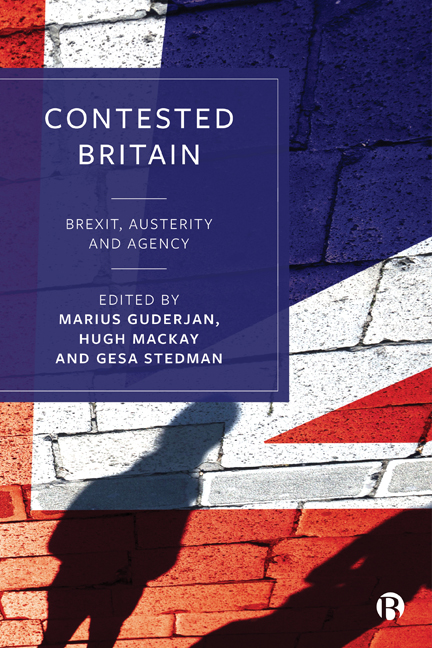6 - The Economy of Brexit: Performance, Interests and Agency
Published online by Cambridge University Press: 10 March 2021
Summary
Introduction
The Brexit referendum, as a project to resolve the internal political conflicts within the British Conservative Party, has been a political misjudgement of monumental proportions. Historical comparisons are thin on the ground but the political crisis, within the Whigs and the Liberal Party, arising from the repeal of the Corn Laws in the 19th century is one of the few historical precedents on such a scale in English history. Unlike the Corn Law repeal, however, the Brexit debate occurs in an era in which the British economy is no longer a rising global power, but instead the reverse, with its world economic importance increasingly under question. The British economy has experienced a long-run relative economic decline and falling international competitiveness with the replacement of manufacturing sectors by a broad-based service sector. Manufacturing now accounts for under 20 per cent of GDP, and services account for 70 per cent. This has implications for European and global economic integration and hence economic policy. Thus, the parallel noted here with debates over the Corn Laws lie not simply with their relevance as a moment of political crisis but that sharp economic change shaped future economic policy. Consequently, there is a need to examine the economic importance Brexit has for the wider economy as a moment of economic transition, articulated through a debate over Britain's future trading relationships.
Lukács’ (1990) concept of class consciousness identifying the importance of agency is an important tool in this respect, suggesting that ‘praxis’ represents the political articulation of collective consciousness arising from the specific sectoral position of differing class interests. The chapter demonstrates how differing elements of British business not only have divergent interests in Brexit but that these differences arise from their position in the economy. This is not to suggest we can simply reduce political interests to economic interests; rather, it is to suggest that it is the dominant interests within each economic sector that plays a disproportionate role in determining policy and outlook for these sectors.
In taking case studies of Brexit, divergent interests can be identified and agency and praxis examined.
- Type
- Chapter
- Information
- Contested BritainBrexit, Austerity and Agency, pp. 89 - 102Publisher: Bristol University PressPrint publication year: 2020

